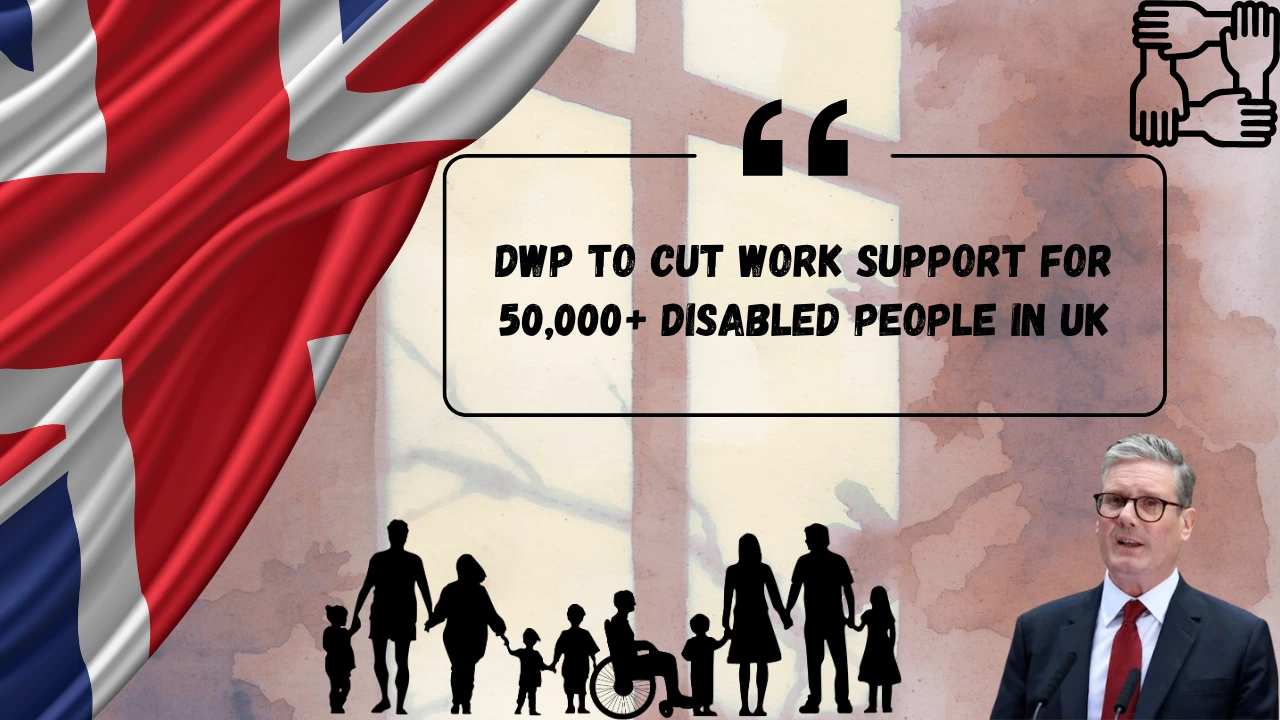DWP Reforms May Remove Work Support for Over 50,000 Disabled People in the UK.The UK’s welfare system is facing one of its most significant overhauls in decades, and disabled claimants are warning they could lose crucial work-related support. At the heart of this change is the DWP’s plan to abolish the Work Capability Assessment (WCA), which currently determines eligibility for the health-element and work allowance under Universal Credit (UC).
Under the proposed reforms, thousands of disabled people who currently rely on the work allowance income buffer stand to lose it potentially stripping them of income and eroding their employment prospects. With estimates starting at 50,000 claimants and reaching upward of 400,000-500,000 under some leaked data sets, the scale of impact is vast.
This article explores the key changes, the numbers at risk, what work allowances mean for disabled workers, and why these proposed reforms may undermine financial stability and labour market participation for many.
Overview of the DWP Reforms May Remove Work Support
| Aspects | Details |
| Policy Area | DWP reforms affecting disability work support, including abolition of WCA and reliance on PIP daily living criteria |
| Administered By | Department for Work and Pensions (DWP) |
| Estimated Affected Disabled Claimants | At least 50,000 currently; some figures suggest up to 400,000-500,000 could lose support |
| Primary Loss Element | Work allowance under UC health element or equivalent support for disabled people in employment/incomes |
| Replacement Assessment Method | Eligibility to shift from WCA to depending solely on Personal Independence Payment (PIP) daily living component |
| Implications for Disabled Workers | Loss of work allowance may reduce net income, discourage part-time or flexible work, increase poverty risk |
| Post Category | Finance |
| Official Website | GOV.UK |
What Are the Changes and Why They Matter?
The Work Capability Assessment (WCA) currently determines whether a disabled claimant qualifies for the health-related work allowance under Universal Credit. This allowance allows eligible disabled people to earn more before benefits are tapered.
“Under proposed reforms, eligibility would instead hinge on whether claimants qualify for the PIP daily living component.”
Unfortunately, the two assessments focus on different criteria: the WCA assesses capability to work, while PIP daily living looks at day-to-day living needs like cooking or mobility. Many claimants pass the WCA but fail to qualify for PIP daily living, which means under the new rules they would lose both the health-element and the work allowance.
How Many People Could Be Affected?
A report by Citizens Advice estimates the number of disabled claimants at risk at 50,000, but leaked DWP-related data suggests far higher numbers, around 409,000 UC health-claimants previously rejected for PIP daily living, and 175,000 ESA claimants also put at risk.
Combined, this could mean up to 584,000 people are vulnerable under the changes. For the subset who are working, this translates into perhaps 80,000 disabled workers losing work allowance benefits, risking reduced net income and disincentives to stay employed.
What Does It Means for Disabled Workers?
The work allowance is a buffer that lets disabled claimants keep a portion of their earnings before their benefits taper off. For example, someone earning £600 per month might be able to keep £200-£300 of that income thanks to the allowance.
If the allowance disappears, the extra earnings get clawed back faster, making part-time work less viable or financially worthwhile. Charities argue this will undermine efforts to support disabled people into work and instead lock them out of flexible jobs they rely on.
Government’s Rationale and Response
The DWP argues the reforms will create a system that is “fit and fair for the future.” Ministers say that tying support to a subjective “fitness for work” framework creates cliffs and discourages employment. The new model focuses on employment support with an additional employment-support budget of £3.8 billion.
There is also a ministerial review into the fairness of PIP assessments. Nevertheless, critics say the transition lacks sufficient protection for those losing existing support and the numbers at risk are profound.
What Disabled Claimants Should Do?
- Check your current status: Are you claiming UC health element or equivalent?
- Look at your PIP status: Do you have the daily living component?
- If you are working and rely on the work allowance, model the impact of losing it would your take-home income fall?
- Keep abreast of announcements from DWP and disability charities, reform details may shift.
- Consider seeking advice from disability support organisations or benefits advisers to fully understand your rights, entitlements, and how changes may affect you.
Conclusion
These proposed reforms by the DWP represent a pivotal moment for the UK’s welfare and employment-support landscape. With at least 50,000 disabled people at risk, and possibly many more, the shift from WCA-based eligibility to PIP daily-living criteria could mean a significant loss of income and work incentives for vulnerable groups.
For disabled workers who rely on the work allowance to make employment viable, the potential loss of support may pose a serious threat to their financial stability and work participation. While the government frames the reforms as modernising welfare and encouraging work, campaigners argue the impact could be the opposite pushing disabled claimants further from employment and into hardship.
It is essential for those affected to stay informed, update their knowledge of eligibility, and seek support to navigate the changing system.
FAQs for DWP Reforms May Remove Work Support
Q1: Who might lose support under the new DWP reforms?
Disabled claimants on WCA-based work allowance who don’t meet PIP daily living criteria.
Q2: Do the reforms immediately abolish the work allowance?
No, but affected claimants risk losing it once changes take effect.
Q3: Will the work allowance be replaced?
No direct replacement; government plans extra employment support.
Q4: When will claimants know the final rules?
Updates will come during ongoing DWP announcements and consultations.
Q5: Can disabled workers stay employed if allowance is lost?
Yes, but less income may make part-time or flexible work harder.





